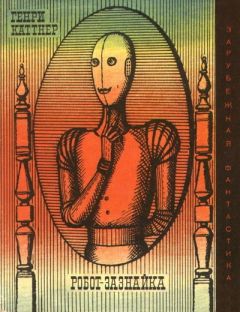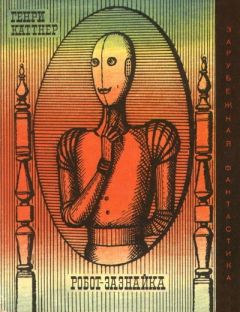Nancy - The Islands of the Blessed
“What happened to the hostages?” asked Thorgil.
“The evildoers cut their throats,” said Brother Sylvus. “Father Severus said that was unfortunate, but you have to remember that all who live are doomed to die. Holy martyrs are assured a place in Heaven. He said you could argue that the hostages were actually lucky.”
Jack rubbed his eyes. A sense of unreality crept over him. He could almost be listening to a group of Northmen explaining why it was good to die in battle and go to Valhalla.
“We had a grand funeral,” said Sister Brecca. “The martyrs were buried in consecrated ground, and the evildoers were buried next to the privies.”
“I suppose they’ll go to Hel,” said Thorgil.
“You can count on it,” Sister Brecca said with shining eyes.
But unfortunately, things began to go downhill after the victory. The flying venom spread, and soon the dead outnumbered the living. Father Severus worked to the last, hearing the confessions of the dying and forgiving their sins. Then he, too, became a victim.
“He chose to fall ill so he could show us the proper way to die,” insisted Sister Brecca. “He was always thoughtful. Always. That dear, kindhearted, saintly man.”
Kindhearted except when he made Sister Wulfhilda carry a glowing piece of iron, Jack thought.
“I saw his soul pulled up to Heaven with golden cords,” said the nun.
Brother Sylvus took up the tale. “He gave me the keys, all except the one for Lady Ethne’s cell. He said that was not my concern.”
So he meant her to die, thought Jack, with a return of his former rage.
“Father Severus ordered me to protect the sanctity of the monastery. Gradually, a few of us began to recover. This was not due to any goodness on our part, of course, but to teach us humility. We were not yet worthy of glory.”
And, of course, they were very, very hungry. They had water from a well, but no food—unless you counted the rats. Rats they had aplenty, great, swaggering, confident beasts that came within reach of your hand. “But we never considered such unclean food,” Brother Sylvus said hastily.
“Why didn’t you just make a quick trip to the storehouse?” Jack asked wearily.
Oh, no. Never. They would never do that. Father Severus had told them with his dying breath that they were not to go outside until spring. Fortunately, Ethne came to their rescue. She called to them from her cell. She had food enough for all. Brother Sylvus didn’t have the key, but he still managed to open her door.
Jack looked at the door, hacked and chopped in a perfect frenzy.
All the packets of dried meat, cheeses, and Pega’s special scones that Thorgil had smuggled in had gone to feed this lot.
And when these were gone, the monks and nuns had begun to starve again. Ethne had never touched a morsel. She had continued to live on the watery, gray gruel handed through her window, though toward the end she ate nothing at all.
Once outside, she quickly fell ill. She sweetly refused any help, saying that it was her penance to gain a soul. She welcomed suffering. “She’s giving her life for us,” said Sister Brecca, reverently.
“Excuse me!” shouted Thorgil. “Excuse me, but you’re all alive! She’s already saved you! Why does she have to die now?” Jack had rarely seen her in such a towering rage, and he’d seen a lot of rages.
“She’s an elf,” said Brother Sylvus, cowering away from the shield maiden. “Father Severus explained it to us. Elves have to make their souls, and it isn’t easy for them. They have no regard for anyone except themselves. They can see a child drowning and never think to stretch out a hand. Lady Ethne did stretch out her hand.”
“Which you bit, thank you very much,” snarled Thorgil. “I don’t know anything about Christian souls, but I know ingratitude when I see it. She’s proved her worthiness for whatever moldy afterlife you oath-breakers inhabit. I intend to see she inhabits this world.” She bent over Ethne and tried to pry open her mouth. The elf lady turned her head aside.
“Thorgil, don’t,” said Jack.
“I’ll pour cider down her nostrils if I have to!”
Jack grabbed the shield maiden’s arm. “You’ll drown her.”
“Then you hold her jaws open. I can’t do everything.”
“Thorgil,” said Ethne in that beautiful, musical voice only elves had. “I choose this path.” Jack was startled. He hadn’t known she was strong enough to speak, but apparently half-elves could endure starvation better than humans. “Thorgil,” repeated the elf lady, “remember how you used to tell me about Valhalla? You longed to fall in battle so you could go there. This is no different.”
At the mention of Valhalla, the monks and nuns drew away from the shield maiden in horror. They hadn’t realized she was a Northman.
“It is different.” Thorgil faltered. “Let me think why. It’s because we like fighting for Odin.” Jack saw uncertainty in her eyes and knew she was remembering Grim’s Island. “And so, naturally, we want to keep on doing it until Ragnarok is declared.” Except that she wouldn’t be fighting alongside the men, Jack thought. She’d be putting warriors back together and milking goats.
“Dying, for me, is how I will achieve Heaven. Do you understand?” said Ethne gently.
“No, I don’t! I was a berserker once. I wanted to die with a sword in my hand, but I lost that desire after I drank from Mimir’s Well.”
At the word berserker, the monks and nuns scuttled on hands and knees to hide behind Brother Sylvus. He began praying.
“No, that’s not quite right.” Thorgil was struggling to find the right words. “Things changed before I drank from Mimir’s Well. The well grants you knowledge, but only if you sacrifice something of great importance. I offered up my life, but the well rejected me. Apparently, my life wasn’t good enough because I didn’t value it. So in my grief I tried to stab myself anyway, and Jack—”
Jack could see where her argument was going; he wanted to stop her, but he wasn’t fast enough. In a split second she had lifted the rune of protection from around her neck.
It was only visible in that short time when it was passed from one wearer to the next. It was a beautiful, bright gold that gathered light from the air. It was surpassingly lovely and desirable, but it had nothing to do with the sick desire for wealth or power. The rune was life itself made visible. And in the middle of the pendant was the shape of the great tree Yggdrassil.
Thorgil placed it around Ethne’s neck, and it glimmered briefly before it disappeared.
“Oh!” said the elf lady, placing her white hand over it. Her skin deepened in color as blood flowed through her veins. Her breathing, scarcely audible before, became stronger. The fever faded from her cheeks. “What a nice chapel,” murmured Ethne, gazing up at the grim ceiling. “I never noticed how many colors gray comes in. And what a good idea it is to cover the floor with grass,” she said, looking at the filthy, discolored straw.
Ethne had always been a featherbrain, and the rune of protection would do nothing about that. But she was at least recalled to life.
Jack was more concerned about Thorgil, who looked devastated. It was how he’d felt after handing the rune to her. He’d never stopped longing for it, but no one could keep it forever. It had been passed from the Bard to Jack and on to Thorgil. Now it was with the Bard’s daughter. It seemed fitting.
“Feed Ethne the rest of that stew,” growled Thorgil, shoving the pot at Brother Sylvus. “If you don’t, I will go berserk and tack everyone’s hide to the wall.” She stalked out of the chapel.
Chapter Forty-five
DEPARTURE
Jack found Thorgil outside in the orchard. She was gathering apples into a pile. “The monastery will need these for the winter,” she said. “As soon as the monks and nuns regain their strength, they’ll have to make preparations for the cold weather. There’s food in the storehouse that will have to be moved to the monastery. The monastery should at least look sealed up until spring. We don’t want trouble with those guards from town. We’ll have to chop more firewood. And something has to be done about that filthy straw. I’ve already got flea bites.”
She talked feverishly, laying out plans. Jack didn’t interrupt. He knew she was trying not to think about the rune.
He helped her move the apples. Later she called up one of the horses and rode off by herself to go hunting. She had only one good hand, but that didn’t diminish her ability to use a spear. She returned with a deer slung over the horse’s back. Brother Sylvus skinned it.
For the next few days Thorgil snapped out orders as crisply as Father Severus himself. Jack noticed that the monks and nuns crossed themselves and avoided her eyes, but they obeyed her. They burned the straw and washed the floors with vinegar, a known remedy against flying venom. Ethne wrinkled her pretty nose and went outside to sit in the orchard. She did little except look beautiful, but no one seemed to mind.
Sometimes Sister Wulfhilda sat with her, telling stories about her life before the terrible trial by ordeal. Ethne was fascinated. She knew almost nothing about Middle Earth beyond the monastery. Sewing, weaving, and milking cows were as fantastic to her as the jeweled wonders of Elfland were to the nun. As for husbands, Sister Wulfhilda had a struggle getting the concept across. “You can only have one? Truly?” said Ethne with her tinkling elvish laugh.
“Truly,” swore Sister Wulfhilda.
When they got on the subject of children, Ethne knew all about how they were made, except that elves almost never had any. It had something to do with not having souls. Or perhaps it was because they were so careless with the ones they did have. Many an elvish infant was left behind at a picnic or placed on a high shelf and forgotten. “I would like to have a baby,” said Ethne.
“For that you must be married,” Sister Wulfhilda said firmly. “To only one man.”
Jack saw that the nun, who had never had children of her own, had adopted the Elf Queen’s daughter.
Thorgil ordered everyone to kill rats. The monks had grown up on farms, so they knew all about hunting with slings. The nuns merely hit the creatures with clubs. They set about the task with a relish that wasn’t altogether holy, but Sister Brecca swore she’d seen an imp turn into a rat and Brother Sylvus declared the slaughter a Christian duty. Pangur Ban helped.
Three nuns, four monks, and Ethne. That was all who were left out of a hundred. The enormity of the disaster kept preying on Jack’s mind as he helped the monastery recover. If they had been allowed to flee, most would probably have survived. They weren’t all sick in the beginning. Yet if they had run, the flying venom would have gone with some of them like sparks blown from a forest fire in a high wind.
Was Father Severus a saint, as the survivors insisted, or a monster? Jack’s opinion was weighted on the side of monster, but the same scales held Olaf One-Brow, who was certainly no one’s idea of a good neighbor. Yet he towered above ordinary men with his openheartedness. Olaf would never have rejected a lonely mermaid on a beach.




